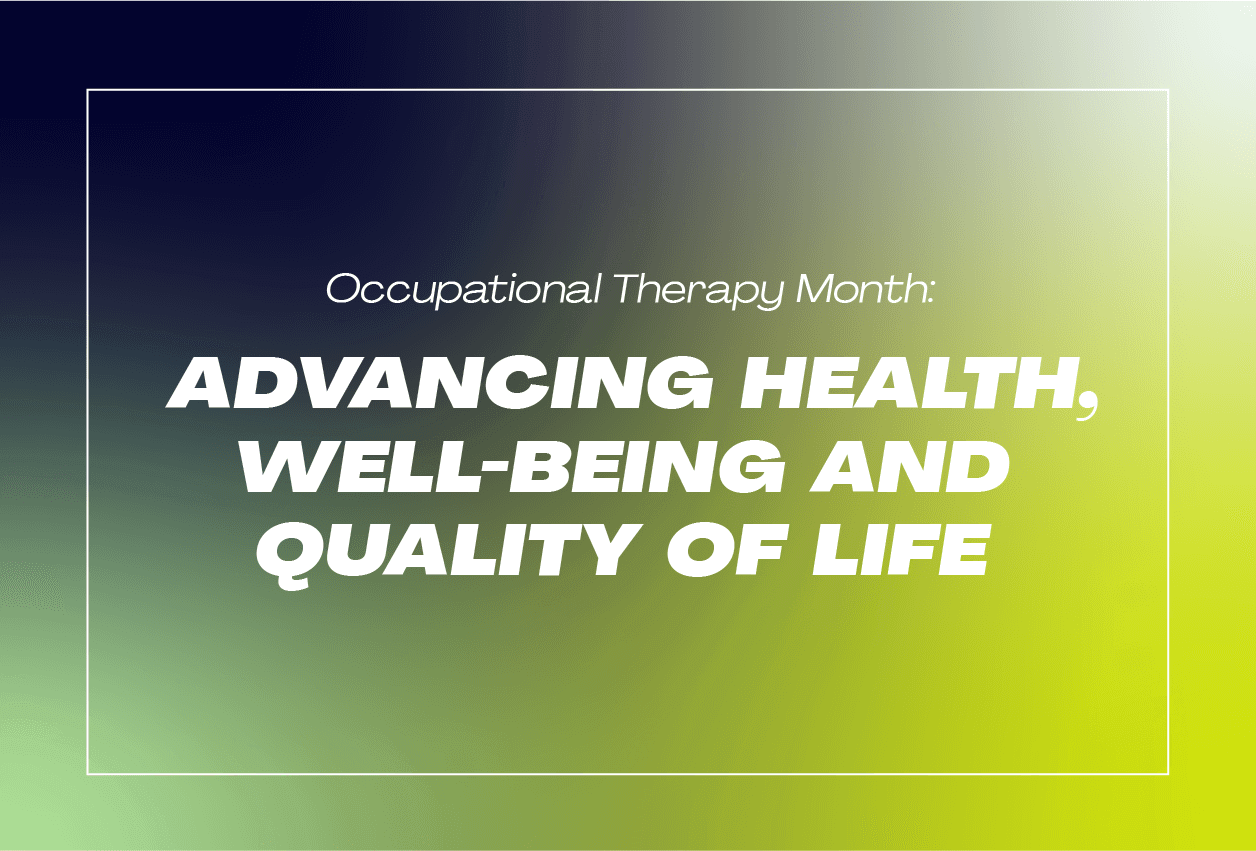By Rachel Lamb . 27/06/2018 · 12 Minute read
It's an amazing thing to give blood. We have the ability to help save lives and all we have to do is sit still while a machine does its work, and then we get a biscuit at the end of it. Result!
Plenty of people give blood and will be familiar with the forms you are asked to complete before you donate. These forms are designed to help phlebotomists decide if you're a good candidate for blood donation.
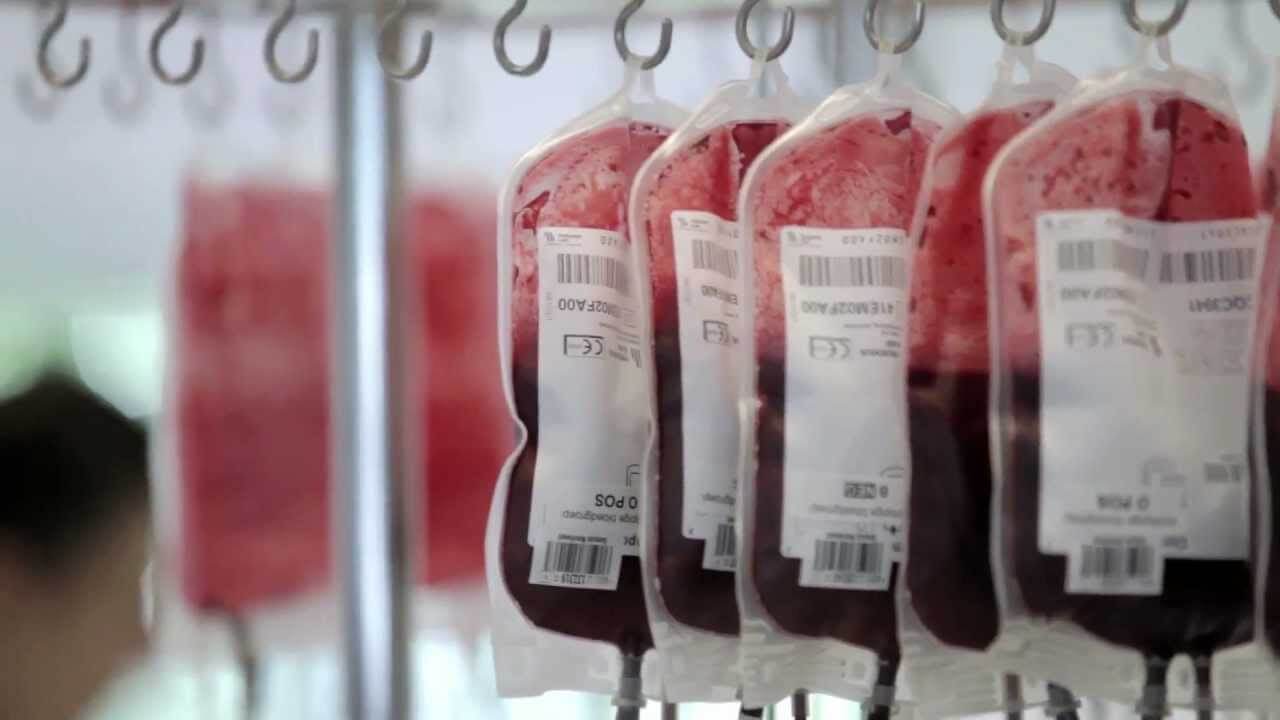
Why can't all blood be donated?
Unfortunately, there are lots of willing donors who are not eligible for giving blood. Reasons for rejecting a candidate are put in place to protect both the candidates themselves and the recipient of the blood.
If not properly vetted, donated blood can lead to the transmitting of infections and diseases, which can put transfusion patients at risk and further spread deadly illnesses, such as Hepatitis or HIV.
Rejections are also put in place to protect the donor; for example, you cannot donate if you're pregnant because donation can cause anaemia, which isn't safe for the unborn baby or the expectant mother.
What is blood donation?
Blood donation is the act of allowing some of your blood to be taken from your body and stored, ready to be given to someone who requires a blood transfusion. Transfusions may be given to someone who has lost blood during surgery or during labour, or someone who may have lost a lot of blood due to an accident or medical emergency.
How is my blood taken for donations?
When you donate blood, you will be guided throughout the process, so you always know what's going on. The first thing you will be required to do is complete the donor healthcheck form, which may have been sent to you in the post if you made an appointment. Ensure this is completed and then read the welcome leaflet, which will be available on arrival at the centre or mobile facility.
Before giving blood, you must make sure you have eaten regular meals, drunk plenty of water (avoid alcohol), and steered clear of any vigorous exercise. The centre or facility will provide you with 500ml of fluid to drink just before you donate, which will help you to stay well before, during and after your donation.
You'll then be called for a private health screening, which is designed to help blood donation staff assess if you're fit to donate. The check will include confirming your identity and asking some confidential questions based on your completed healthcheck form. Should there be a medical query, you'll be referred to a registered nurse. Registered nurse jobs involve explaining why you may not be able to give blood or advising you on when you may be able to return in the future.
Your iron levels must be checked before you can give blood to make sure you're not anaemic. A small blood sample is therefore taken from your finger beforehand.
Once you are cleared to give blood, you will be asked to wait before being taken to a comfortable donation chair, ready for the process to begin. Your identity will be confirmed once again before a pressure cuff is placed on your arm - this maintains a small amount of pressure throughout the donation (it's not to measure your blood pressure).
A suitable vein is found on your arm, which is then cleared with an antiseptic solution to kill any bacteria on your skin. After the cleaning, the phlebotomist will insert a needle into the vein, which will begin taking blood from you, passing it through a tube and into a bag, which is being automatically weighed on an agitator scale throughout the donation. The scale will make beeping noises while you are donating to let staff know where you are in the process.
A blood donation is 470ml and will typically take 5-10 minutes to complete.
Once complete, the needle will be taken out of your arm and the area will be cleaned and dressed. You should leave the dressing on for up to 6 hours and avoid using your arm to lift or push anything heavy. Do not have a hot bath on the day of your donation.
Now for the best part!
After your donation is finished, you will be encouraged to relax for at least 15 minutes with a snack and refreshments. Whatever you say, doc!
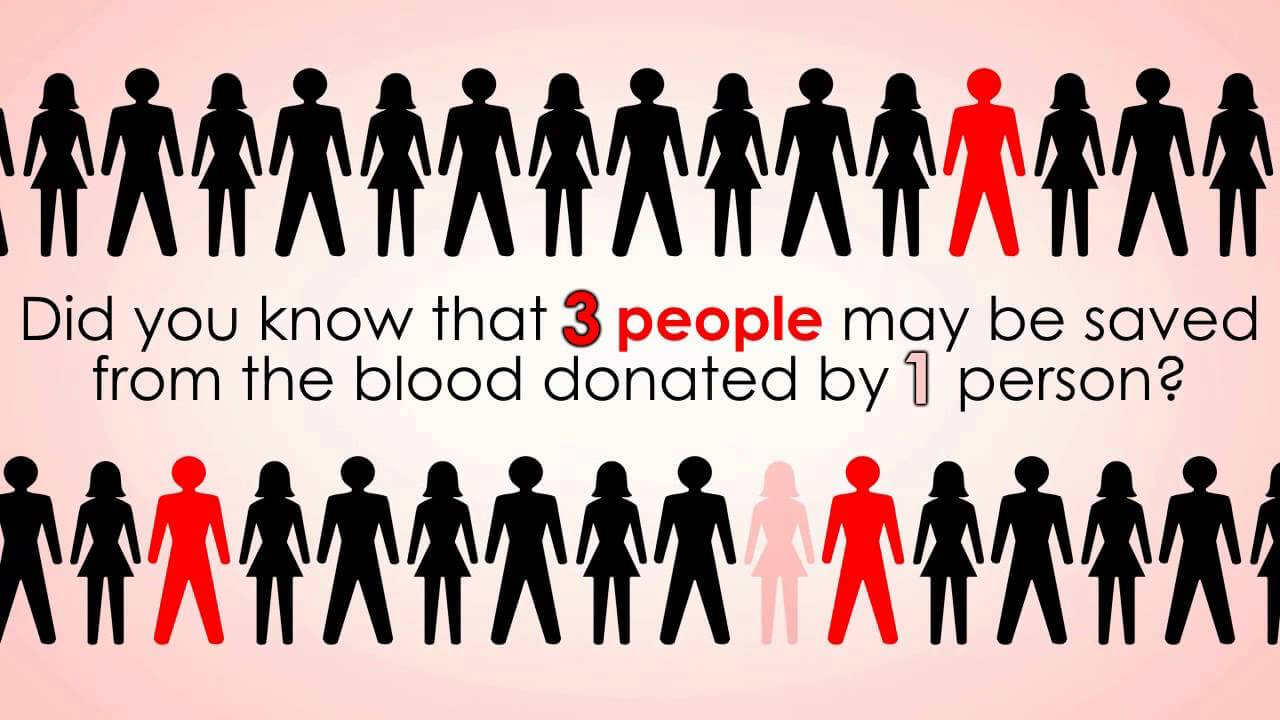
Why might your blood donation be rejected?
Unfortunately, some willing donors are not permitted to give blood. You may be rejected if:
- You are at risk of transmitting an infection
- You have ever injected yourself with illegal drugs or non-prescription drugs (including drugs for body-building), even if it was just once
- You are involved with activities that put you at risk of contracting HIV, Hepatitis B or Hepatitis C
- You are HIV positive or carry the Hep B or Hep C virus
- You have recently had a body piercing or tattoo
- You are pregnant or were given a blood transfusion during pregnancy
- You have recently travelled to certain areas of the world outside of the UK
- You have an ongoing medical condition or take regular medication
- You have had cancer
- You have recently received dental treatment (check-ups and fillings are ok after 24 hours)
- You are taking antibiotics or have taken antibiotics within the last 7 days
- You have had an infection within the last 14 days
- You are feeling under the weather (unwell)
- You are a man who has had sex with another man in the last 3 months
You can check whether you’re able to give blood here.
Does giving blood hurt?
If you've ever had a blood test, you'll know that a phlebotomist job involves inserting a needle into your arm, which can feel like a sharp scratch. The needle for a blood donation is inserted in the same way and can also feel like a sharp scratch, but the pain only lasts a moment.
An answer on the website Quora says:
"Pinch the fleshy, soft underside of your arm. That pinch is similar to what you feel when the needle is put in your arm."
Once the needle has been inserted, you shouldn't feel any pain or discomfort. If you do feel pain, tell a member of staff and they will assist you.
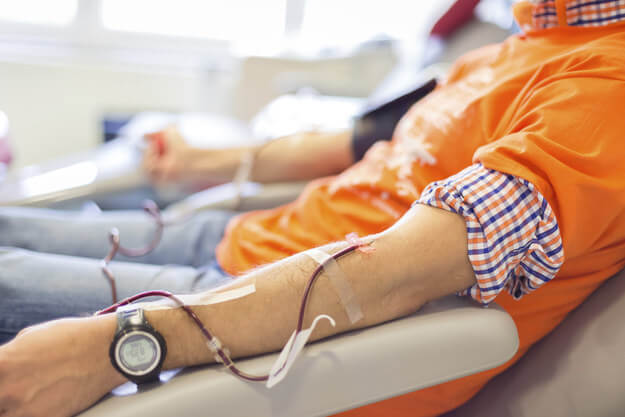
Can you come back again if you're rejected for donating blood?
Depending on why you were rejected, you may be advised to return and donate after some time has passed. For example, if you've been on antibiotics or recently had a piercing or tattoo, you can probably still donate but will need to come back once it's safe to do so.
Can men who have sex with men give blood?
Provided they meet the other donor selection criteria, men who have had sexual contact with other men more than 3 months ago should be able to donate their blood.
Men who have sex with men are not being purposefully discriminated against. Since 2011, changes have been made to the criteria to ensure they are not being permanently excluded. In 2011, men who had sex with men were no longer excluded permanently, but could not donate for at least 12 months. Further changes were made in 2017.
The website blood.co.uk says:
"In June 2017, SaBTO (Advisory Committee on the Safety of Blood, Tissues and Organs) completed their review of the latest available medical and scientific research and other evidence in relation to the donor selection criteria.
The Government then announced changes to the rules related to specific activities. These changes mean that the rules are consistent for all groups that are deferred due to sexual behaviours and will offer more people the chance to give blood.
Subject to meeting the other donation rules, men who have had specific sexual activity with another man; commercial sex workers and people who have sex with partners in groups known to have high risk of having an infection that could be passed on during sex (high risk partners) are now able to donate after three months have passed since that sexual activity."
Why should you give blood?
Aside from the obvious reason: it saves lives, here are some more reasons to donate blood if you're eligible:
- You'll inspire other people to give blood, which is great for the NHS and its patients.
- There is a shortage of blood donors in the UK (6,000 donors are needed each day in England). More people from black, Asian and minority ethnic communities are in demand and being encouraged to donate.
- There are multiple blood groups, which means you will help to meet the demand for your group.
- You may be someone in need of a transfusion one day.
- Most people are eligible to donate but only around 4% actually do.
- You'll feel great for doing it.
- Free snacks!
What are the blood groups?
The main blood groups are A, B, AB and O. These groups are further divided into either Rhesus D negative or Rhesus D positive.
Your blood type or group is inherited from your parents.
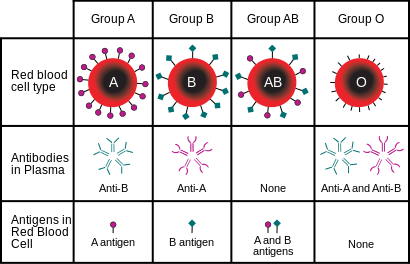
“Why can’t someone be given blood from another blood group?”
Plasma (the liquid part of your blood) contains antibodies, which are a part of your natural defence system. They alert your immune system about foreign substances so it can destroy them.
If you give someone blood from the wrong group, their existing antibodies will attack the cells in the new blood, which can be life-threatening.
However, blood from group O can be given to any other group as it does not contain any A or B antigens (protein molecules found on the surface of red blood cells).
What is the most common blood group?
With almost 48% of the UK population belonging to it, blood group O is the most common. (Source: NHS)
“I don’t need to donate because my blood type is common.”
This is a popular excuse for people choosing not to donate their blood; however, think about it another way. If your blood type is common then, yes, more donors will have your blood type but even more patients will require it. Your blood group is in higher demand than any other! We encourage you to donate if you are eligible, even if you have a common blood group.
What is the rarest blood type?
With only 1% of the UK population, AB negative is the rarest blood type for the United Kingdom. AB positive follows closely behind with only 2% of the population. However, unlike AB negative, AB positive can receive blood from all blood groups. AB negative can only receive from other AB negative donors, A negative, B negative and O negative donors.
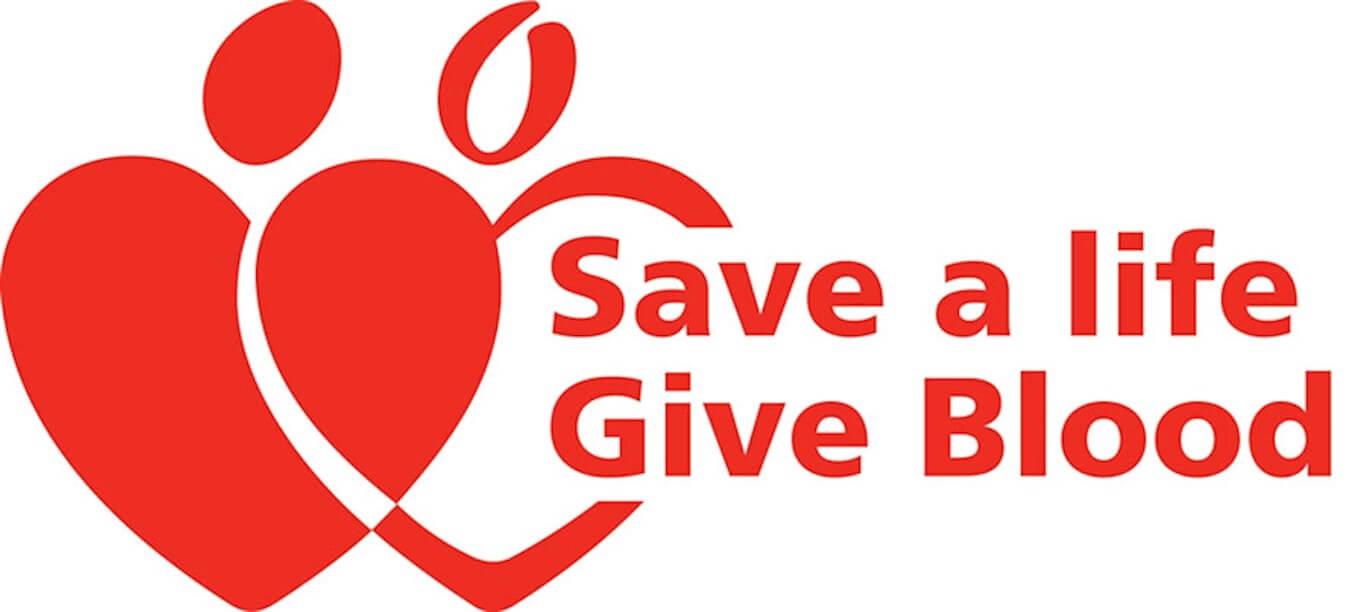
Image Credit: Blood.co.uk
Find Phlebotomy jobs with Your World Healthcare
If you're looking for phlebotomist jobs in the UK, Your World can help! Browse our phlebotomy roles or speak to a member of our specialist team today.







